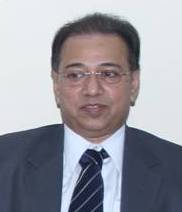Notable cases
He was a part of a two-judge bench of the Supreme Court of India that dealt with " SEBI vs Sahara " case. The bench held that Sahara illegally collected Rs 24,000 crore and ordered it to return all the money to the investors. However, even after more than one and half years Sahara did not follow its orders. [3] In February 2014, the bench of Justice Radhakrishnan and Justice JS Khehar ordered arrest of Sahara's top management including Sahara's topmost boss Subrata Roy. [4]
In a judgement favouring property development firm DLF in its legal battle against the homeowners association of Silver Oaks society, Gurgaon, Justice Radhakrishnan took a narrow view of common areas, to the detriment of the apartment owners. [5] Whereas apartment owners contended that the facilities inside their colony belonged to the homeowners association, Justice Radhakrishnan, along with Justice A.K. Sikri of the Supreme Court of India, held that property development companies could legitimately contend that these facilities belong to them instead. In so doing, they overturned a judgement of the Punjab and Haryana High Court, which had taken a liberal view of "common areas", and given relief to the homeowners against the property developer. [6]
He was a part of a two-judge bench of the Supreme Court of India that decided National Legal Services Authority v. Union of India. Decided in April 2014, one month before stepping down as a Supreme Court judge, this 113-page decision declared transgender people to be a 'third gender', affirmed that the fundamental rights granted under the Constitution of India apply to transgender people, and gave them the right to self-identify their gender as male, female or third-gender.
This page is based on this
Wikipedia article Text is available under the
CC BY-SA 4.0 license; additional terms may apply.
Images, videos and audio are available under their respective licenses.
